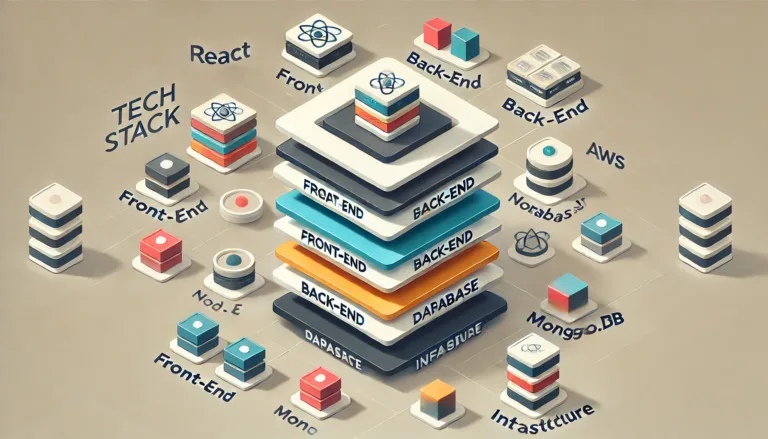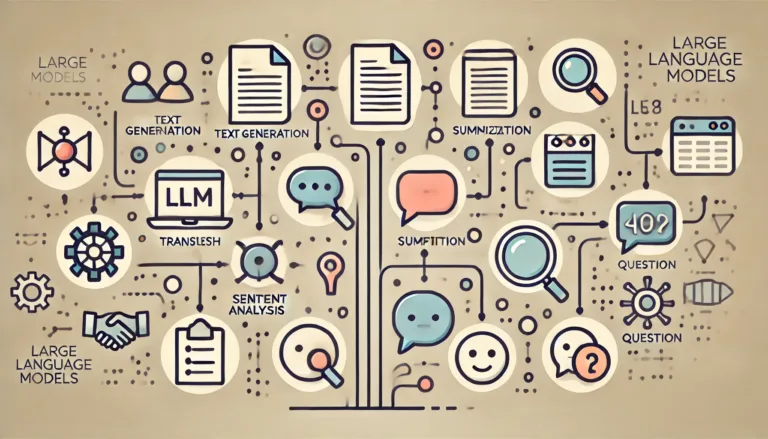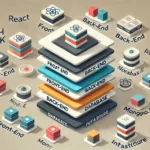AI Certification Programs
Getting to Know AI Certifications
If you’re diving into artificial intelligence programming, AI certification programs can be your secret weapon. They offer a clear, structured path to sharpen your AI skills. These courses cover everything from the basics like machine learning to more advanced stuff like natural language processing and AI algorithms.
Top universities and trusted organizations usually offer these certifications, making sure the content you’re learning is up-to-date and relevant. Whether you’re a newbie or a seasoned pro, there’s something for everyone.
Why You Should Get AI Certified
Opting for an AI certification has heaps of benefits. Here are a few reasons you might want to go for it:
-
Career Boost: An AI certification can open up new job opportunities and help you climb the career ladder. Companies see these certifications as proof you know your stuff.
-
Skill Building: These programs help you build both basic and advanced AI skills, essential for roles in AI software development or working with AI coding languages.
-
Access to Resources: Many programs offer tons of learning materials, job listings, and networking chances. Take Microsoft’s AI certification programs, for example. They connect you with training, job listings, and recruiting partners via Microsoft Learn (Microsoft).
-
Industry Clout: Certifications from big names like Microsoft, Stanford, and MIT xPro are highly respected and valued by employers.
Below is a quick comparison of some AI certification programs out there:
| Certification Provider | Program Name | Main Topic | Prerequisites |
|---|---|---|---|
| Microsoft | Career Path Program | Comprehensive AI training for various career stages | None specified |
| Stanford University | AI Graduate Certificate | Principles, machine learning, NLP, robotics | Bachelor’s degree, calculus, linear algebra, probability, programming experience (TechTarget) |
| MIT xPro | Designing AI Products and Services | AI product design, machine learning, deep learning | Suitable for UI/UX designers, product managers, entrepreneurs (TechTarget) |
Getting an AI certification can help you cement your expertise and stay competitive in tech. For more AI learning paths, check out AI in Python and AI in Java.
By putting in the time for these certifications, you’re making sure your skills stay sharp and relevant. Curious about what happens next? Peek at some AI interview questions to get a head start.
Top AI Certification Providers
Looking to boost your AI skills? Check out these popular certification programs to level up.
Microsoft AI Certifications
Microsoft’s AI certification programs are a big deal in the tech world. They offer industry-approved credentials through their Career Path Plan, which is part of Microsoft Learn. Whether you’re new to AI or already experienced, Microsoft has something for you. You can follow tailored learning paths to master technical solutions and make data-driven decisions.
Key Features:
- Globally recognized
- Pathways for beginners and pros
- Access to job listings and recruiters
Learn more about Microsoft’s AI programs.
| Certification | Prerequisites | Focus Areas |
|---|---|---|
| Azure AI Engineer Associate | None, Azure experience recommended | AI solutions on Azure |
| Azure Data Scientist Associate | Experience in data science and Azure | Data science on Azure |
| Azure AI Fundamentals | None | Basic AI and ML concepts |
Artificial Intelligence Board of America (ARTiBA)
ARTiBA offers a deep dive into AI with their Artificial Intelligence Engineer (AIE) Certification. The AIE has three tracks, covering everything from basic machine learning to advanced neural networks and natural language processing. This program is designed to get you job-ready and set for more senior roles.
Key Features:
- Three focused tracks
- Advanced AI techniques
- Track-specific prerequisites
Find out more about ARTiBA’s AI certifications.
| Certification | Prerequisites | Focus Areas |
|---|---|---|
| AIE – AM 100 | Basic programming skills | Machine learning, neural networks |
| AIE – AP 200 | Intermediate programming skills | Reinforcement learning, NLP |
| AIE – AP 300 | Advanced programming skills | Advanced AI techniques, deep learning |
Stanford University’s AI Certificates
Stanford’s AI Graduate Certificate is one of the most prestigious AI programs around. It covers the whole spectrum of AI principles, from machine learning basics to robotics and decision-making under uncertainty. Perfect for developers and professionals aiming to get ahead in the AI field.
Key Features:
- Broad AI education
- Taught by top researchers
- Mix of theory and practice
Discover more about Stanford’s AI certificates.
| Certification | Prerequisites | Focus Areas |
|---|---|---|
| AI Graduate Certificate | Bachelor’s degree and programming experience | Machine learning, robotics, NLP |
These top AI certification options will help you stay sharp and competitive in the AI field. Whether you’re just starting out or looking to climb up the ladder, these programs are your ticket to mastering AI. Get certified, get skilled, and get ahead in your AI career!
A Look at AI Certification Programs
So, you’re looking to beef up your AI skills, huh? Lucky for you, there are some killer certification programs out there that’ll make you a whiz in no time. Here’s a quick peek at three big names: Microsoft’s Career Path Program, Stanford’s Artificial Intelligence Graduate Certificate, and MIT’s xPro AI Program. Each of these paths offers different perks to help you master artificial intelligence programming.
Microsoft Career Path Program
The Microsoft Career Path Program is all about building solid skills for real-world tech roles. The learning paths and modules are designed to teach you how to scale solutions, define AI systems, and make smart decisions based on data.
Main Features:
- Learning Paths: Loads of AI-centric modules on Microsoft Learn
- Practice Assessments: Tools to get you ready for those tough certification exams
- Job Listings and Recruiters: Direct connection to AI gigs and hiring partners
This program is perfect whether you’re just starting out or already deep in the tech world. It’s geared to keep you right on track with your AI learning and certification milestones.
| Course Component | What You’ll Get |
|---|---|
| Learning Pathways | Custom AI modules |
| Certification Preparation | Practice tests and official exams |
| Career Services | Job postings and network with recruiters |
Want more info? Check out their official page.
Stanford Artificial Intelligence Graduate Certificate
Stanford’s offering is through its School of Engineering, giving you a strong base and advanced understanding in AI. If you want to dig deep into AI’s core concepts, this one’s for you.
Main Topics:
- Logic and Probabilistic Models
- Machine Learning and Robotics
- Natural Language Processing and Knowledge Representation
Need-to-Knows:
- Bachelor’s degree (minimum 3.0 GPA)
- Background in calculus, linear algebra, and probability
- Some programming chops
This program will get you well-acquainted with AI algorithms and other key ideas.
| Required Background | Details |
|---|---|
| Degree | Bachelor’s (minimum 3.0 GPA) |
| Math Knowledge | Calculus, Linear Algebra, Probability |
| Programming Skills | Required |
Want the full scoop? Visit TechTarget.
MIT xPro AI Program
MIT’s xPro AI Program focuses on designing AI-driven products. It’s perfect for UI/UX designers, tech product managers, entrepreneurs, and those looking to create their own AI startups.
Main Highlights:
- AI Product Design Stages
- Machine Learning and Deep Learning Algorithms
- Hands-on Problem-Solving Techniques
You’ll learn how to bring AI into various industries, from business to healthcare—check our section on AI Applications in Various Industries.
| Part of Course | What’s Covered |
|---|---|
| Product Design Stages | Inside scoop on AI product design |
| Algorithm Techniques | Machine and Deep Learning Algorithms |
| Real-World Applications | Practical solutions for different industries |
For more details, check out TechTarget.
Picking the right certification can make a massive difference in your AI career. Whether you prefer the structured approach of Microsoft’s program, Stanford’s rigorous curriculum, or MIT’s hands-on style, there’s something out there for you. Dive into these programs and find the one that fits with your career goals and interests.
For more tips and tricks on diving into AI, check out our guides on AI in Python, AI Interview Questions, and AI Coding Languages.
Top AI Tools and Software You Should Know About
If you’re a developer eager to tap into the vast potential of artificial intelligence, you need the right tools. Let’s get into some of the big players: Jupyter Notebooks, Viso Suite, Google Cloud AI, Azure Machine Learning Studio, ChatGPT, and Cursor.sh.
Jupyter Notebooks vs Viso Suite
Jupyter Notebooks
Jupyter Notebooks is like the magic notebook of AI. It’s an open-source web app that lets you create and share documents with live code, equations, visualizations, and narrative text. A favorite among data scientists, it supports various programming languages like Python and R.
| Feature | Jupyter Notebooks |
|---|---|
| Programming Language | Multiple (Python, R, etc.) |
| Collaboration | Shared notebooks |
| Use Case | Data science, research |
| Flexibility | Very high |
Viso Suite
Viso Suite is your one-stop-shop for AI vision projects. It simplifies everything by unifying all the infrastructure requirements, so you don’t have to juggle multiple software solutions. Plus, it speeds up development with visual programming, making life easier.
| Feature | Viso Suite |
|---|---|
| Programming Language | Visual programming |
| Collaboration | Integrated infrastructure |
| Use Case | Computer vision |
| Flexibility | High for vision projects |
Google Cloud AI vs Azure Machine Learning Studio
Google Cloud AI
Google Cloud AI offers a treasure chest of machine learning tools, including pre-trained cloud APIs for computer vision, natural language, and video. It supports frameworks like TensorFlow and PyTorch, although its Edge AI/ML capabilities have taken a hit with the shutdown of its IoT platform.
| Feature | Google Cloud AI |
|---|---|
| Supported Frameworks | TensorFlow, PyTorch, etc. |
| Edge AI/ML | Limited |
| Pre-trained Models | Yes |
| Scalability | High |
Azure Machine Learning Studio
Azure Machine Learning Studio is the Swiss Army knife for creating and deploying machine learning models. It’s user-friendly with drag-and-drop features, supports several open-source frameworks, and is accessible for all skill levels.
| Feature | Azure ML Studio |
|---|---|
| Supported Frameworks | TensorFlow, PyTorch, etc. |
| Edge AI/ML | Good support |
| Pre-trained Models | Yes |
| Scalability | High |
ChatGPT and Cursor.sh
ChatGPT
Made by OpenAI, ChatGPT is a rock star in the AI world for its freakishly human-like text generation. Quickly gaining over a million users, it’s great for generating text and Q&A tasks. But, some places are wary about privacy concerns.
| Feature | ChatGPT |
|---|---|
| Developer | OpenAI |
| Use Case | Text generation, Q&A |
| Users | Over 1 million |
| Limitations | Privacy concerns |
Cursor.sh
Cursor.sh turns your text prompts into fresh code and explains snippets, ideal for coding newbies. The basic version is free, but you might want to spring for the Pro version at $20 a month for more robust features.
| Feature | Cursor.sh |
|---|---|
| Use Case | Code generation, learning |
| Free Version | Limited instructions |
| Pro Version | $20/month |
| Users | Developers, learners |
Staying ahead in AI means picking the right tools. Whether you’re diving into AI programming or exploring NLP techniques, knowing the strengths and quirks of each tool can give you the edge you need.
How AI Is Changing the Game in Different Industries
AI is shaking things up across various sectors, making things faster and smarter. Let’s check out how AI is making waves and what it means for everyone involved.
Boosting Business Productivity with AI
AI is making office life easier by handling boring tasks and helping with smart decisions. Think of it as your super-efficient assistant. AI tools can manage stuff like data entry, answering customer questions, and even crunching numbers for financial decisions, leaving people free to tackle the big-picture stuff.
| What it Does | How it Helps |
|---|---|
| Automation | Takes care of routine tasks like data entry and scheduling. |
| Customer Service | Chatbots solve customer problems quickly and efficiently. |
| Financial Analysis | AI digs through tons of data to find useful insights. |
Want to know more? Check out our section on how AI makes business better.
Healthcare and Finance: AI’s Big Impact
AI is also making a splash in healthcare and finance. In hospitals, it’s diagnosing illnesses faster and suggesting personalized treatments. For instance, AI can study medical images to spot conditions early, which obviously helps patients get better sooner. And in finance, predictive models built with AI help in assessing risks, catching fraud, and automating trading decisions.
Healthcare Applications
- Diagnostic Tools: AI examines x-rays and MRIs to spot issues early.
- Patient Monitoring: Wearables keep an eye on vital signs and warn doctors.
- Personalized Treatment: AI suggests custom treatment plans based on patient data.
Finance Applications
- Predictive Models: AI predicts market trends and helps in making investment choices.
- Fraud Detection: AI identifies suspicious transactions in real-time.
- Automated Trading: AI systems trade stocks based on real-time data.
Learn more about how AI is used in healthcare and finance.
AI Changing the Retail and Security Scenes
In stores, AI is ramping up the shopping experience with personalized recommendations, better inventory management, and smoother supply chains. Retailers are loving how AI can predict what customers want and keep the shelves stocked just right.
| What it Does | How it Helps |
|---|---|
| Personalized Recommendations | AI suggests products based on what customers like. |
| Inventory Management | Predicts stock needs and manages inventory levels. |
| Supply Chain Optimization | Streamlines supply chains, cutting down delays. |
As for security, AI keeps a watchful eye on things, spotting unusual activities on surveillance cameras and alerting security teams. Plus, it’s a shield in cyberspace, spotting and tackling threats by analyzing network traffic.
Dive into more about how AI is reshaping retail and security in our section on AI shopping insights.
Quick Links to Explore More
- Check out NLP techniques to see how AI understands and processes language.
- Learn the ropes of AI in Python if you want to build your own AI systems.
- Get prepped with AI interview tips for landing those tech jobs.
- Discover the best coding languages for AI and start your AI journey.
AI isn’t just a buzzword; it’s making real changes, and these changes are here to stay. Dive in and see how AI can transform your industry.
What’s Next for AI
Looking into the future of AI, it’s hard not to get jazzed up. We’re on the brink of a revolution that’ll change how we work and live for good.
AI Software Market Boom
The AI software scene is booming. A study by IDC predicts the market will hit around $791.5 billion by 2025. That’s a monster jump at a yearly growth rate of 18.4% (TechTarget). It’s clear – AI is becoming a must-have for businesses everywhere.
| Year | Forecasted AI Software Market Revenue (in Billion $) |
|---|---|
| 2022 | $466.0 |
| 2023 | $551.6 |
| 2024 | $652.9 |
| 2025 | $791.5 |
With things heating up, now’s the time to check out AI certification programs to stay ahead of the pack.
Hot AI Trends
AI is shaking up industries, driving new ideas, and boosting productivity like nobody’s business. Here’s a look at the big trends:
- Boosting Business: AI is all about making life easier. From robots to self-driving cars, businesses are using AI to automate tasks and get more done. AI tech is even upping team performance with help from smart tools (TechTarget). If you’re a developer, getting the hang of AI algorithms is key.
- Healthcare and Finance: In healthcare, AI helps with predicting health issues, customizing treatment plans, and diagnosing problems quickly. Over in finance, AI is sniffing out fraud, managing risks, and even handling trades.
- Retail and Security: Retail stores aren’t shy about using AI for tailored shopping experiences, managing stock, and guessing customer needs. And in security, AI is stepping in with facial recognition, spotting threats, and keeping an eye on things (TechTarget).
These trends show just how much AI is reshaping our world. For those coding wizards out there, diving into AI coding languages like Python or Java will unlock even more AI magic.
By following these trends and arming yourself with skills from AI certification programs, you’ll be in top shape to ride the AI wave and make your mark in this exciting field.









